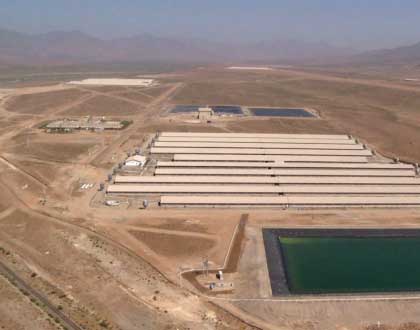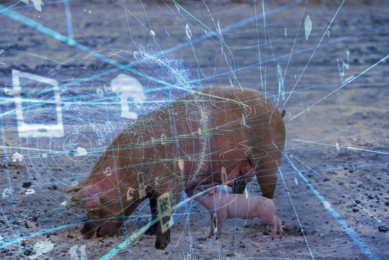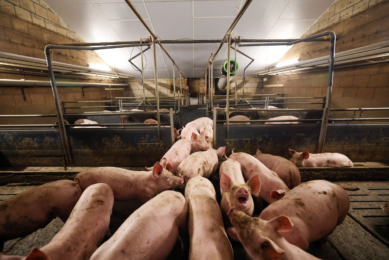Chile: Pigs starve as locals protest against odour

Workers at the AgroSuper’s giant pig farm in Freirina, in the Coquimbo Region of Chile, were forced to abandon the plant when protests by residents got out of hand, leaving the pigs to starve.
The Chilean government have ordered Agrosuper to evacuate the animals, some 500,000 pigs, from the facility within six months.
Environmental problems
The locals around the plant started complaining about the foul odours, which by some reports were noticeable as much as 5 km away.
No one paid any attention to the complaints until locals started blocking roads. The roadblocks turned into battles of kids with stones vs. national police with water cannons, and AgroSuper staff abandoned the plant several days ago.
Health Minister Jaime Mañalich in a radio interview on 22 May called the situation a “catastrophe,”
It’s not just a problem of bad smells…it’s that the hogs aren’t being fed or given water and are on the verge of death…30,000 tons of hogs…the death of these hogs in short term would be an environmental catastrophe…there has been no one in the plant for the last two days…It’s the biggest hog plant in the world…there are 50,000 gestating sows, giving birth every day…there’s no adequate facility for biological residues…the catastrophe has no precedent in Chilean history…risk of underground water contamination…risk of a catastrophe that lasts for months or years…We have an absolute obligation to take control of the plant…”
Facility closure
In an email Agrosuper reacted on 22 May saying:
Today, Tuesday May 22, in Freirina, health and environmental authorities declared the immediate closure of the Agrosuper facility. Given this situation, the company remarks that:
- This agroindustrial complex is equipped with the most modern environmental management technology in the world, in which US$54 million has been invested (10% of the total initial investment). During the startup period, an unforeseeable technical failure occurred, delaying proper functioning, which was also reported in an opportune manner to the authorities, who undertook successive site inspections. They gave rise to an inspection process and decisions about courses of action that were being fulfilled within the time frames established by the authorities.
- The company has made great efforts to eliminate the ill odours that have affected the quality of life for inhabitants of the Huasco valley.
- From December 2011, when we realised there was a problem, work has been done to repair the aeration systems as well as the well hoods, using all human and economic resources available in Chile and abroad. However this is dealing with a biological system that doesn’t have an immediate solution. At the moment that the plant was taken over, it was 80% complete.
- As of May 19, personnel of the plant found it impossible to enter the plant because of a road blockage and violent attacks on the installations, placing the workers and contract personnel that provide services at risk . For this reason, and taking responsibility for the security and physical integrity of same, the company was obliged to evacuate the complex without trying to return to the plant, while public order was reestablished.
- Just today, after a five day blockade, it was possible to re-enter the plant and take account of the grave damages.
- The same day, the 19th, the company informed the authorities about the mortal risk for the pigs to be left for a time without food or water. This situation would expose the health of the whole community to an imminent sanitary emergency and required police intervention to allow the return of workers to their posts.
- The company is now collaborating with authorities in the management of the situation, just as it has always done in a manner to correct known problems and carry out its business activity in harmony with the community and fully respecting existing regulations.
AgroSuper, got permission to build the facility in 2005, and opened last year after a USD$200 million investment. The company said it was doubling its capacity to 150,000 sows and an output of 3.8 million pigs a year. Total investment at the site was to be USD$800 million.
Source: Steven Bodzin











